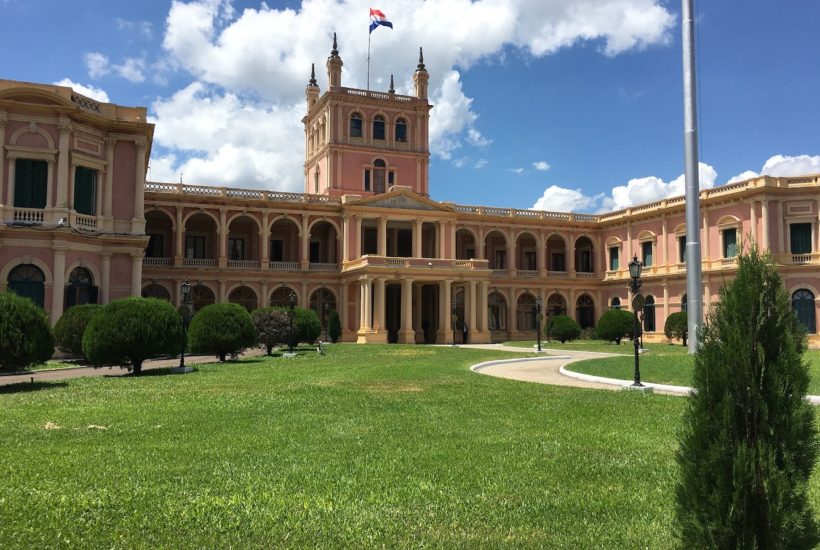Featured
Paraguayan Chamber of Fintech to boost regulation with new national study
The Paraguayan Chamber of Fintech has grown to 29 members who operate in payment methods, identification, loans, consulting, financial infrastructure and, of course, cryptocurrencies and blockchains. The first step the Chamber of Fintech will make for the further development of the fintech sector is the study intended to develop as a “Fintech map” of Paraguay.

Although perhaps not one of the most recognized, Paraguay has its own ecosystem of companies dedicated to financial technology. As of 2017, the Paraguayan Chamber of Fintech was created to unify them and to date continues its efforts to highlight these startups at the international level.
One of its latest initiatives is to carry out a detailed study on the panorama of the Fintech sector in the country, with a view to subsequently creating an appropriate regulatory system. This research will be carried out jointly with the Paraguayan-German University (UPA) and the Center for Alternative Finance of the University of Cambridge.
Find out more about the Fintech sector in Paraguay and read the latest economic news with our companion app, Born2Invest.
The project was in the Chamber’s attention since its creation
Cinthia Facciuto, president of the Paraguayan Chamber of Fintech, commented about the study: “This will give us a starting point to make the sector known nationally and internationally. It will also give us an important input for strengthening the sector in general and for the development of an effective regulatory framework for the activities of Fintech companies in the country (…) We are in constant conversation with the Central Bank of Paraguay (BCP) and the National Securities Commission (CNV), with whom we want to collaborate more closely each time.”
This project has been on the table ever since the Chamber was founded, but so far it seems that it will crystallize. From an initial dozen startups, this organization has grown to 29 members who operate in payment methods, identification, loans, consulting, financial infrastructure, and, of course, cryptocurrencies and blockchains.
The lack of regulation in Paraguay could constitute a real problem for fintech startups
One of these startups is Cripex, which operates with buying and selling, remittances, and cryptocurrency mining. Since in Paraguay there is no specific regulation on these assets, this company decided to self-regulate from the outset, “acting de facto as regulated entities before the Secretariat for the Prevention of Money Laundering (SEPRELAD).”
With respect to this lack of regulation, Facciuto explained in a previous report that it could constitute a real problem for fintech startups:
“Technology goes faster than the law. And this is a real problem because we have companies that have been constituted for 8 years and cannot operate or have many limitations to do so due to the lack of specific regulation.”
In turn, Gustavo Villate, vice president of the House, shared that opinion and showed the first steps to those who point with a formal request for regulation:
“From the Chamber, we want to push PSD2 regulations so that banks open their APIs and give access to certain data to Fintech companies. This will be beneficial for everyone. Another factor that limits the growth of Fintech solutions in Paraguay is connectivity. We are among the most backward countries in terms of quality/price.”
However, the first step is the study they intend to develop as a “Fintech map” of Paraguay. That way, they will be able to better understand the needs of the sector in order to present a coherent proposal to the authorities.
According to a report on Alternative Finance in the Americas and the Caribbean, carried out by the Center for Alternative Finance at Cambridge University, the Inter-American Development Bank (IDB) has been working since 2017 with several countries, including Paraguay, to create a regulatory framework for the fintech sector. So far, however, only Mexico seems to have made progress on this initiative.
Earlier this year, several fintech company representatives met with relevant authorities to determine how fintech and cryptocurrency activities should comply with national anti-money laundering laws. Beyond this, however, a specific regulatory framework is still uncertain, although the first steps are being taken to achieve this.
__
(Featured image by Viktor_Kisman via Pixabay)
DISCLAIMER: This article was written by a third party contributor and does not reflect the opinion of Born2Invest, its management, staff or its associates. Please review our disclaimer for more information.
This article may include forward-looking statements. These forward-looking statements generally are identified by the words “believe,” “project,” “estimate,” “become,” “plan,” “will,” and similar expressions. These forward-looking statements involve known and unknown risks as well as uncertainties, including those discussed in the following cautionary statements and elsewhere in this article and on this site. Although the Company may believe that its expectations are based on reasonable assumptions, the actual results that the Company may achieve may differ materially from any forward-looking statements, which reflect the opinions of the management of the Company only as of the date hereof. Additionally, please make sure to read these important disclosures.
First published in be[IN]crypto, a third-party contributor translated and adapted the article from the original. In case of discrepancy, the original will prevail.
Although we made reasonable efforts to provide accurate translations, some parts may be incorrect. Born2Invest assumes no responsibility for errors, omissions or ambiguities in the translations provided on this website. Any person or entity relying on translated content does so at their own risk. Born2Invest is not responsible for losses caused by such reliance on the accuracy or reliability of translated information. If you wish to report an error or inaccuracy in the translation, we encourage you to contact us.

-

 Business1 week ago
Business1 week agoDow Jones Near Record Highs Amid Bullish Momentum and Bearish Long-Term Fears
-

 Crowdfunding7 days ago
Crowdfunding7 days agoThe Youth Program at Enzian Shooting Club Is Expanding Thanks to Crowdfunding
-

 Impact Investing2 weeks ago
Impact Investing2 weeks agoEU Backs 90% Emissions Cut by 2040 and Delays ETS2 Rollout
-

 Crypto3 days ago
Crypto3 days agoTariff Turmoil Sends Bitcoin and Ethereum Lower as Crypto Markets Face Mounting Pressure

























